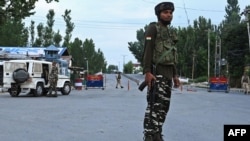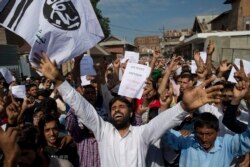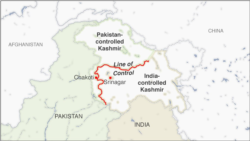India's government said Tuesday it is easing its lockdown in Kashmir in a "phased manner" after cutting phone and internet access for over a week to prevent protests over its decision to end the Himalayan region's autonomy.
Fearing unrest, India cut communications and imposed a curfew in the sector of Kashmir it controls on August 4, a day before its surprise presidential decree to strip the Muslim-majority region of its special status.
An Indian Home Ministry spokesperson said on Twitter that the restrictions "are being eased out in a phased manner" in the tinderbox Kashmir Valley.
Normal communication in the more peaceful Jammu division of the region "has been restored after assessment by relevant local authorities", the spokesperson added.
There was no independent confirmation of the easing of restrictions. On Tuesday afternoon people in Kashmir could still not be reached by phone and the internet still appeared to be inaccessible.
The spokesperson said that medical services are being provided "without any hindrance" and the availability of medicines has "been ensured" in every hospital in the valley.
A main highway through the region "continues to function normally", with 100 heavy vehicles "plying daily" carrying fuel and other essentials.
Earlier, Attorney General K.K. Venugopal told India's Supreme Court security appeared to be improving in Kashmir.
"The situation in J&K [Jammu & Kashmir] is being reviewed every day and there are signs of improvement," Venugopal said, as the court heard a plea by a political activist against the lockdown.
Kashmir has been split between India and Pakistan since their independence from Britain in 1947.
Rebel groups have for decades fought against Indian soldiers deployed in the part of Kashmir controlled by New Delhi, seeking the territory's merger with Pakistan or outright independence.
The conflict has left tens of thousands dead, mostly civilians.






